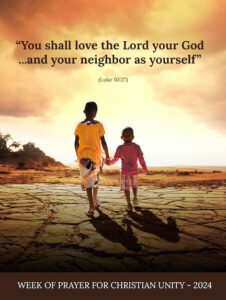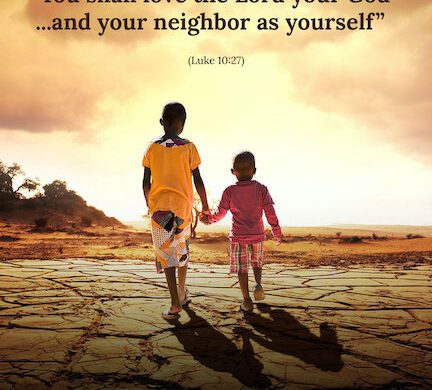WASHINGTON (OSV News) – Amid the “paralyzing nature of polarization” in society today and the “tragedy of war” around the world, “the importance of living the love of Christ in our own circumstances cannot be overemphasized,” a U.S. bishop said in a message for the Week of Prayer for Christian Unity Jan. 18-25.

As chairman of the U.S. Conference of Catholic Bishops’ Committee on Ecumenical and Interreligious Affairs, Bishop Joseph C. Bambera of Scranton, Pennsylvania, urged Christians throughout the United States to unite across denominational lines and pray for peace.
Each year a different country and theme is highlighted during the weeklong observance. For 2024, the Christians from Burkina Faso in West Africa developed the prayer materials and chose the theme from St. Luke’s Gospel, “You shall love the Lord your God … and your neighbor as yourself.” (Lk 10:27)
“May Christians throughout our country come together across denominational lines to pray for peace in our world and an end to the sad divisions that prevent us from fully loving each other as Christ loves us all,” Bishop Bambera said in his message released Jan. 12.
The Week of Prayer for Christian Unity began as the Church Unity Octave in 1908, initiated by Father Paul Wattson and Mother Lurana White, who were Episcopalians and co-founders of the Society of the Atonement at Graymoor in Garrison, New York. They called for an observation of eight days of prayer for an end to divisions between Christians.
In 1909, Father Wattson and Mother White were received into the Catholic Church, along with 15 other members of the Society of the Atonement, or the Franciscan Friars and Sisters of the Atonement. Pope Pius X gave his blessing to the Church Unity Octave and in 1916, Pope Benedict XV extended its observance to the universal church.
Since the Second Vatican Council, the weeklong observance has been co-organized by the World Council of Churches and what is now the Vatican’s Dicastery for Promoting Christian Unity.
In 1966, the council’s Faith and Order Commission of the World Council of Churches and the dicastery (formerly secretariat) began collaborating on a common international text for worldwide usage. Since 1968 these international texts, which are based on themes proposed by ecumenical groups around the world, have been developed, adapted and published for use in the United States by the Graymoor Ecumenical & Interreligious Institute, according to a news release from the institute.
